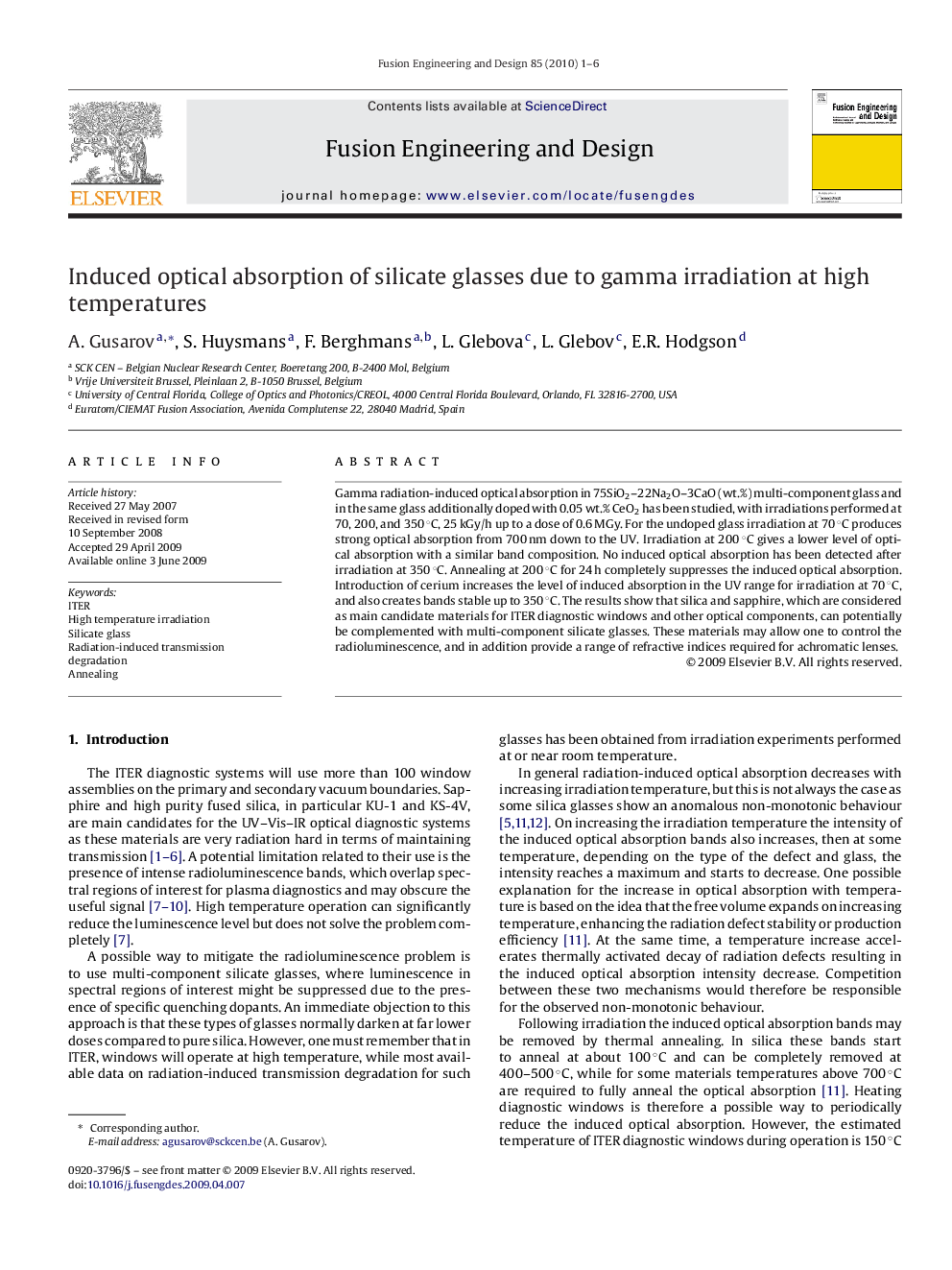| کد مقاله | کد نشریه | سال انتشار | مقاله انگلیسی | نسخه تمام متن |
|---|---|---|---|---|
| 272174 | 505015 | 2010 | 6 صفحه PDF | دانلود رایگان |

Gamma radiation-induced optical absorption in 75SiO2–22Na2O–3CaO (wt.%) multi-component glass and in the same glass additionally doped with 0.05 wt.% CeO2 has been studied, with irradiations performed at 70, 200, and 350 °C, 25 kGy/h up to a dose of 0.6 MGy. For the undoped glass irradiation at 70 °C produces strong optical absorption from 700 nm down to the UV. Irradiation at 200 °C gives a lower level of optical absorption with a similar band composition. No induced optical absorption has been detected after irradiation at 350 °C. Annealing at 200 °C for 24 h completely suppresses the induced optical absorption. Introduction of cerium increases the level of induced absorption in the UV range for irradiation at 70 °C, and also creates bands stable up to 350 °C. The results show that silica and sapphire, which are considered as main candidate materials for ITER diagnostic windows and other optical components, can potentially be complemented with multi-component silicate glasses. These materials may allow one to control the radioluminescence, and in addition provide a range of refractive indices required for achromatic lenses.
Journal: Fusion Engineering and Design - Volume 85, Issue 1, January 2010, Pages 1–6